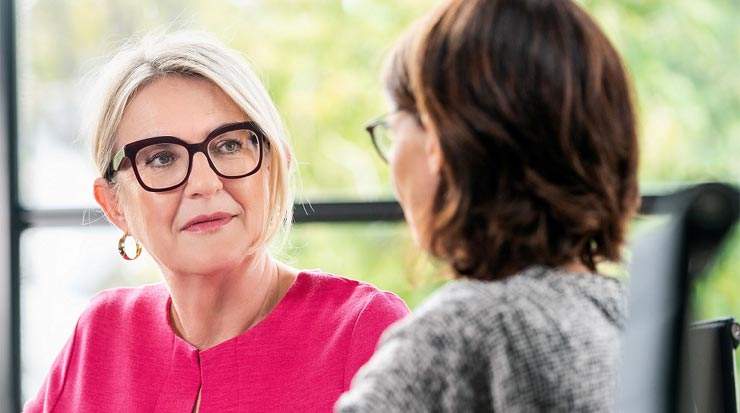Q1: The travel industry has been under extreme pressure since the start of the coronavirus pandemic. In your expert opinion, what do you think the future holds for inbound tourism to Germany?
Petra Hedorfer: The figures for global tourism are indeed worrying. The United Nations World Tourism Organization expects international arrivals to have dropped by between 60 and 80 percent this year.
Around the world, Germany is perceived to have managed the crisis comparatively well. However, inbound tourism depends not just on the situation in our own country but also on what is happening in our source markets. Travel patterns will take some time to recover, even if the introduction of vaccines is successful, and airline and hotel capacity needs to be gradually rebuilt.
What’s more, there are bound to be setbacks along the way on the road to recovery. We experienced a significant drop in cases of infection this summer, only to see an equally dramatic surge in autumn that is now affecting many European countries. I think we need to prepare ourselves for a long process of recovery.
To be more precise, the recovery phase will last at least until the end of 2023, according to the latest findings of analysts at Tourism Economics. Travel to Germany from Europe will recover more quickly than from our overseas markets, with leisure travel recovering more quickly than business travel.
Q2: What gives you cause for optimism in these difficult times?
Petra Hedorfer: There are a number of good reasons to be optimistic. The most important one is that millions of people are looking forward to worry-free travel again, to discovering other countries and experiencing other cultures, to going on successful business trips and to sharing their experiences with others.
Studies by market research institute IPK International also show that the willingness to travel abroad has already increased significantly in many countries over the course of this year.
Then there are reasons that make Germany stand out as a travel destination. The 2020 Anholt Ipsos Nation Brands Index (NBI), for example, has once again confirmed Germany’s excellent image with a no. 1 ranking. It should be noted that the survey of 20 countries was conducted between July 07 and August 31, 2020 i.e. in the midst of the pandemic.
And safety is an important factor in the choice of travel destination. International surveys have shown that Germany is considered the safest travel destination worldwide when it comes to the risk of coronavirus infection. The field studies conducted from June to September, 2020 show that this opinion has become even more established.
Q3: What can you as a national tourist board do to boost tourism while the coronavirus pandemic is still with us?
Petra Hedorfer: We have identified various areas of action to focus on. First of all, we are analysing markets and market segments very carefully for their potential for recovery. It is here that we will concentrate our marketing activities.
This leads me directly to our second area of action: customer centricity – anticipating what tomorrow’s customers will expect. We are not only seeing that travellers are becoming more safety-conscious, but also that they are showing greater interest in sustainable tourism. And we are using this shift in attitudes to refocus our brand.
The third area of action is digital empowerment – gaining a competitive edge through innovative marketing as destinations begin to compete again in the ‘new normal’, digitalisation will play a crucial role. We and our partners are putting our faith in digital solutions, including chatbots that rely on artificial intelligence to answer questions, the use of digital voice assistants, and a major open-data solution for the German inbound tourism industry.
Q4: Will the coronavirus pandemic lead to new trends among travellers that might affect Germany as a travel destination?
Petra Hedorfer: Customer behaviour is constantly changing, irrespective of coronavirus, but the pandemic is accelerating many changes.
COVID-19 has led to greater interest in sustainability, for example. Almost 80 percent of foreign travellers from our most important source markets think the coronavirus pandemic could lead to more sustainability in tourism. In the latest COVID-19 study conducted by IPK International, 55 percent of respondents stated they would generally consider nature-oriented holidays as an option, while a further 21 percent stated that they were even more likely to consider them during the pandemic.
Q5: Is Germany prepared for this change in demand?
Petra Hedorfer: Absolutely. Sustainability is a key concern for us. In the recently published SDG Index, which documents the progress made by individual countries in achieving the United Nations’ Sustainable Development Goals (SDGs), Germany ranks fifth out of 166 countries. And the respondents in the NBI are most likely to name Germany as the country that will handle the threat of climate change most effectively over the next five years.
Germany’s environment is in good health, and a lot is being done to keep it that way. With 16 national parks, 16 UNESCO biosphere reserves and 104 nature parks, around a third of Germany’s land area enjoys special protection status.
Q6: So, demand for holidays in the heart of nature is rising, but are there segments that will decline as a result of coronavirus?
Petra Hedorfer: Generally, the segments in which Germany is particularly strong are also the ones hit hardest.
For example, Germany is the number one cultural and city break destination for European holidaymakers, but many of the large events that dominate this segment could not take place, or only to a very limited extent, in 2020. We hope that events such as the Oktoberfest and the Christmas markets will be able to take place on the usual scale this year. And towns, cities, cultural institutions and entertainment venues have done a great deal to facilitate safe and memorable holidays despite coronavirus.









